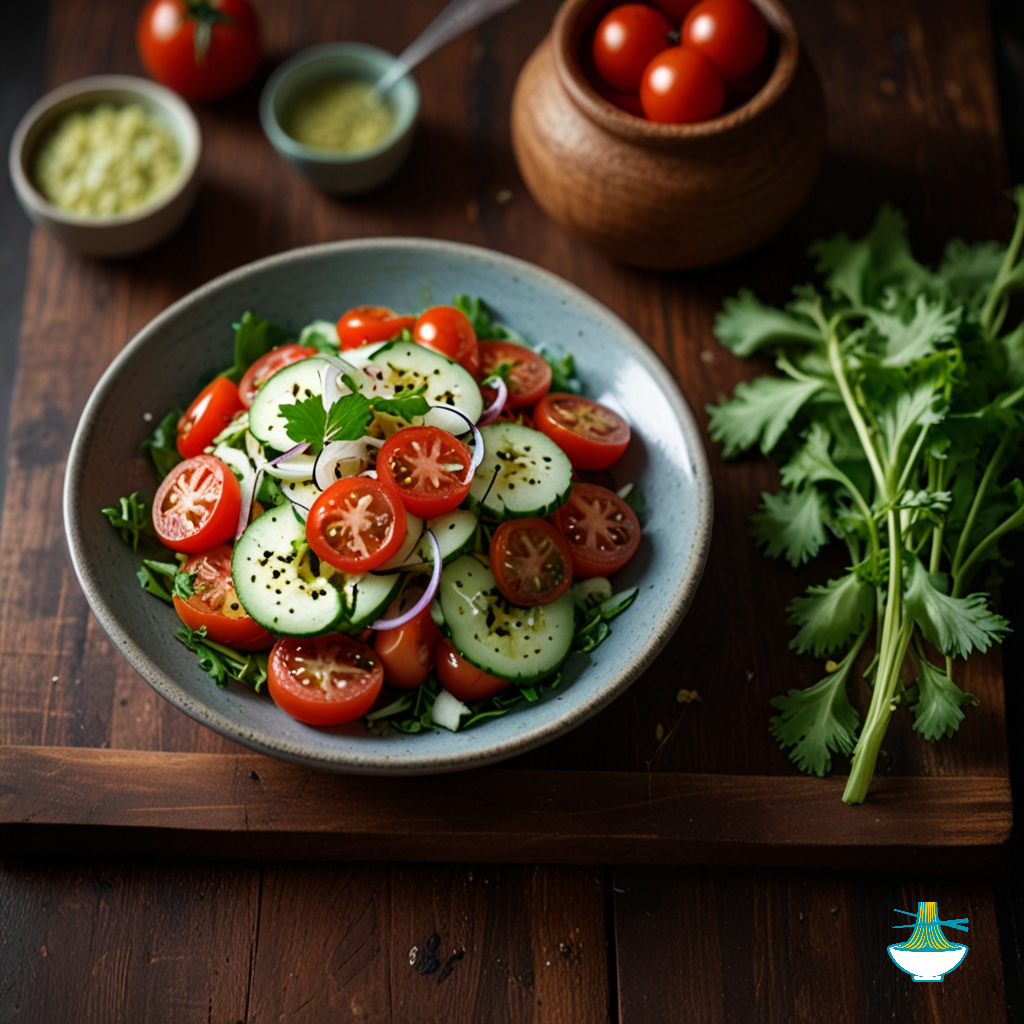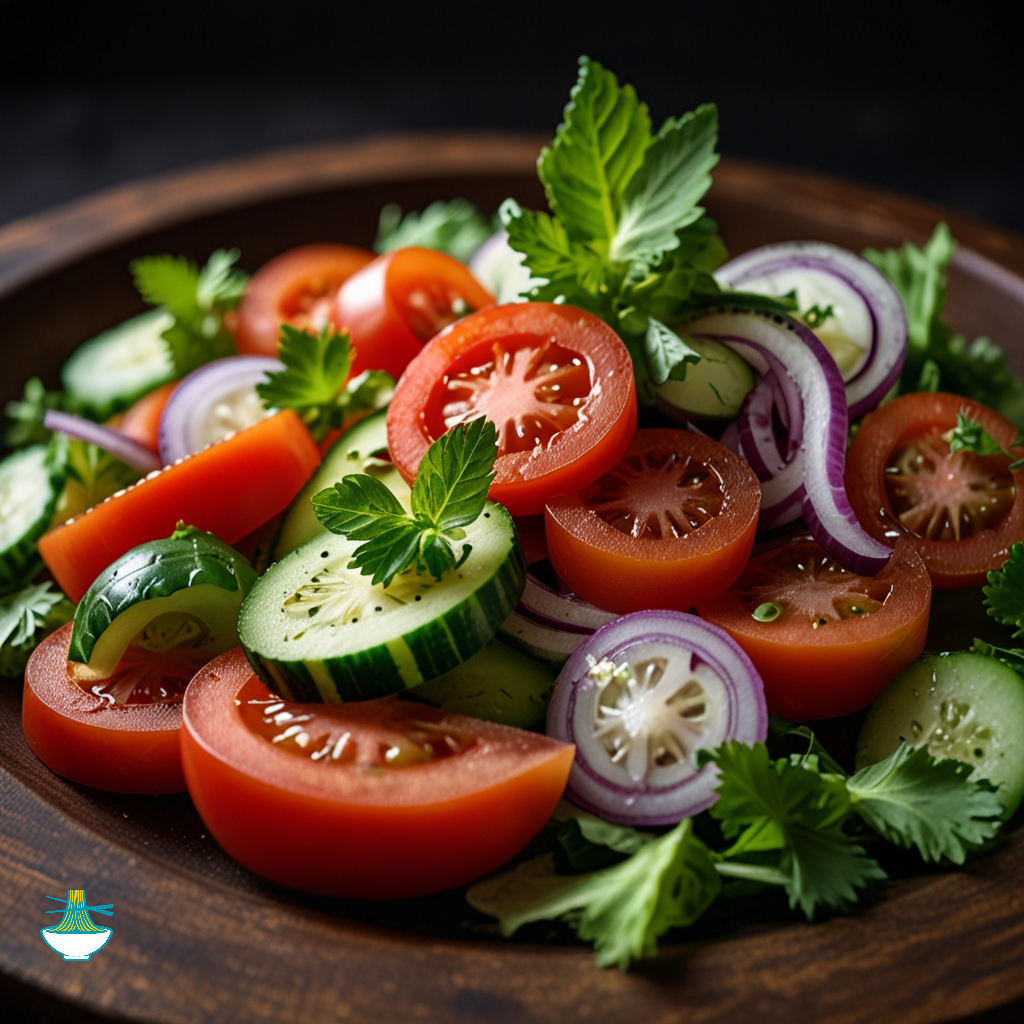Achichuk Salad: A vibrant mix of tomatoes, onions, cucumbers, and herbs, originating from Mediterranean cuisine, celebrated for its refreshing flavors and simplicity. Learn about its rich history and how to prepare this delightful dish.
Ingredients :
- Fresh tomatoes
- Onions
- Cucumbers
- Herbs (such as parsley or mint)
Preparation method:
1. Wash and dice the tomatoes, onions, and cucumbers.
2. Finely chop the herbs.
3. Mix all the ingredients together in a bowl.
4. Toss gently to combine.
5. Serve immediately or refrigerate until ready to serve.
This recipe keeps it simple and straightforward, perfect for a quick and delicious salad.
Nutrition Value:
Here's a breakdown with approximate values for each component per 100g:
1. Fresh tomatoes:
- Calories: 18 kcal
- Carbohydrates: 3.9g
- Protein: 0.9g
- Fat: 0.2g
- Sodium: 5mg
- Cholesterol: 0mg
- Vitamins: Vitamin C (21% DV), Vitamin A (17% DV), Vitamin K (9% DV), various B vitamins
- Minerals: Potassium (5% DV), Manganese (5% DV), Magnesium (3% DV), Phosphorus (3% DV)
- Nutritional benefits: Rich in antioxidants like lycopene, may reduce the risk of heart disease and certain cancers, low in calories.
2. Onions:
- Calories: 40 kcal
- Carbohydrates: 9.3g
- Protein: 1.1g
- Fat: 0.1g
- Sodium: 4mg
- Cholesterol: 0mg
- Vitamins: Vitamin C (10% DV), Vitamin B6 (5% DV), Folate (5% DV)
- Minerals: Potassium (4% DV), Manganese (7% DV), Phosphorus (3% DV)
- Nutritional benefits: Contains antioxidants, may reduce inflammation, and improve heart health, low in calories.
3. Cucumbers:
- Calories: 16 kcal
- Carbohydrates: 3.6g
- Protein: 0.7g
- Fat: 0.1g
- Sodium: 2mg
- Cholesterol: 0mg
- Vitamins: Vitamin K (16% DV), Vitamin C (4% DV)
- Minerals: Potassium (3% DV), Magnesium (2% DV), Manganese (4% DV)
- Nutritional benefits: Hydrating, low in calories, rich in antioxidants, may protect against chronic diseases.
4. Herbs (such as parsley or mint):
- Calories: Varies, typically very low
- Carbohydrates: Varies, usually minimal
- Protein: Varies, usually minimal
- Fat: Varies, usually minimal
- Sodium: Varies, usually minimal
- Cholesterol: 0mg
- Vitamins: Vitamin K, Vitamin C, Vitamin A
- Minerals: Calcium, Iron, Magnesium
- Nutritional benefits: Flavorful, aromatic, rich in vitamins, minerals, and antioxidants, potential health benefits including improved digestion and immune support.
These values provide a clear overview of the nutritional composition and benefits of each ingredient in the Achichuk Salad.


Comments